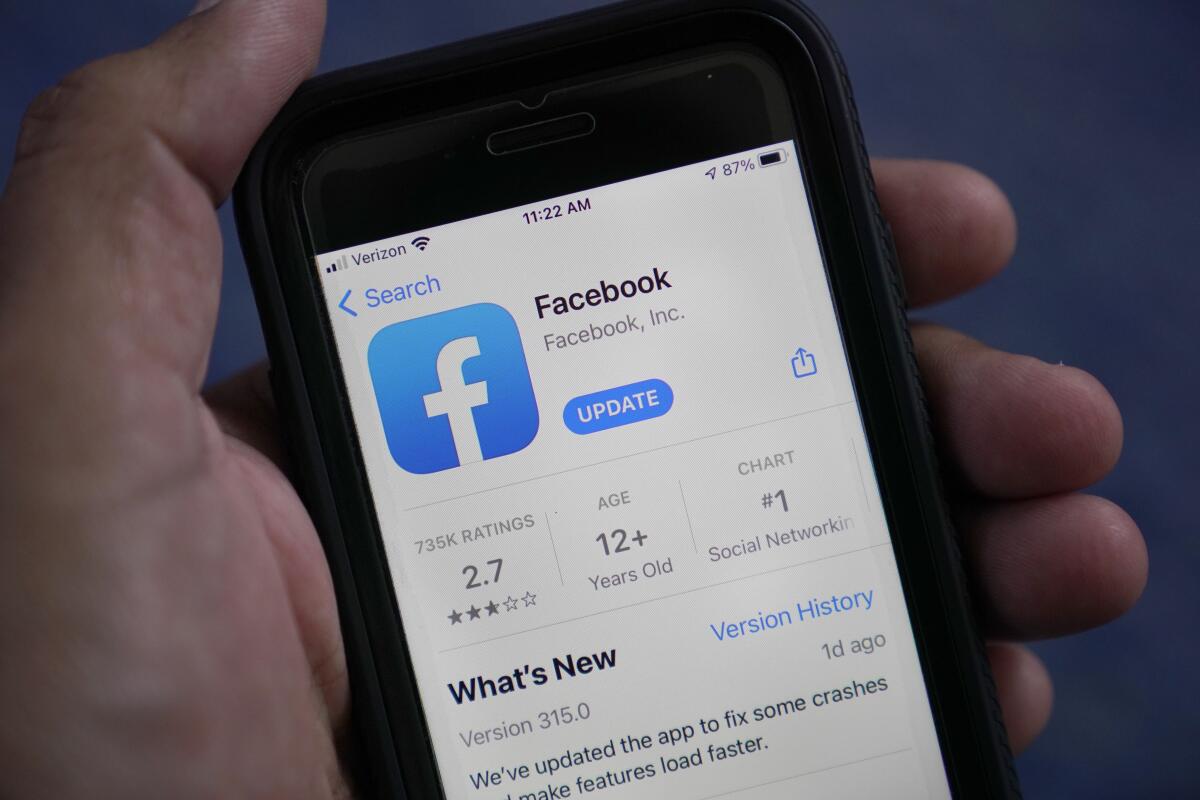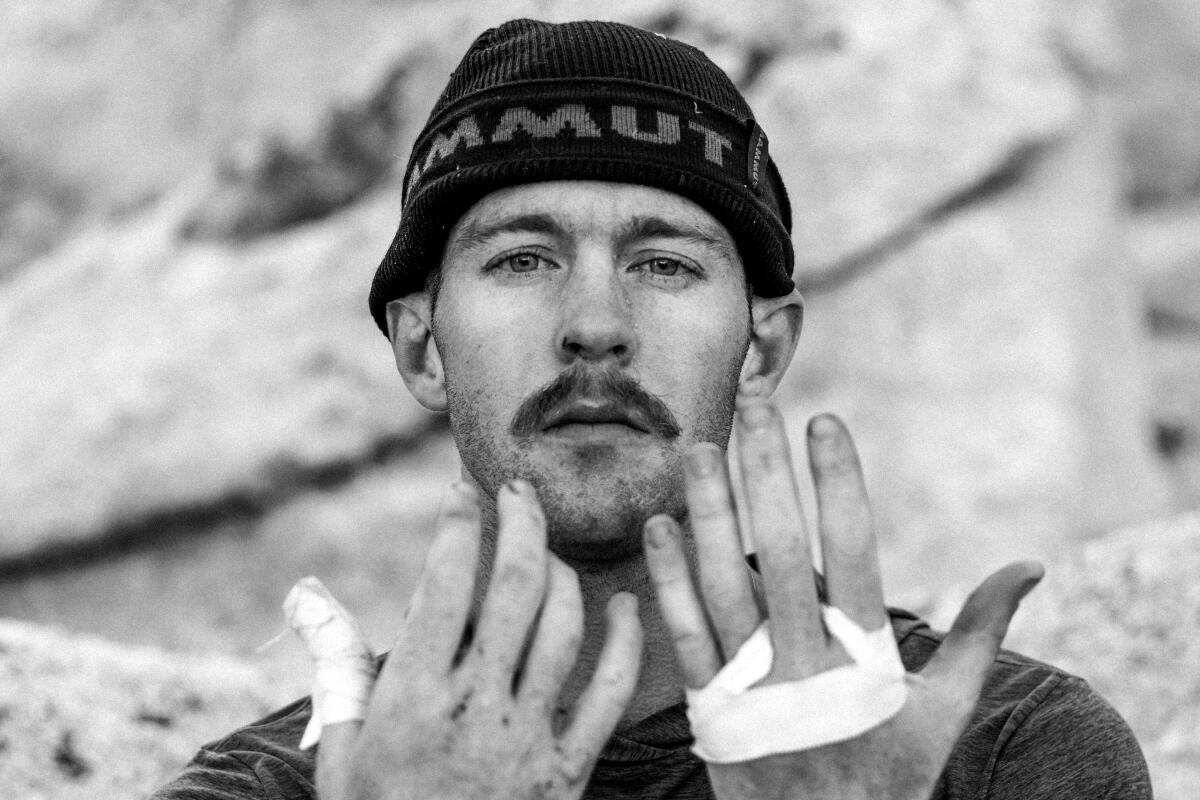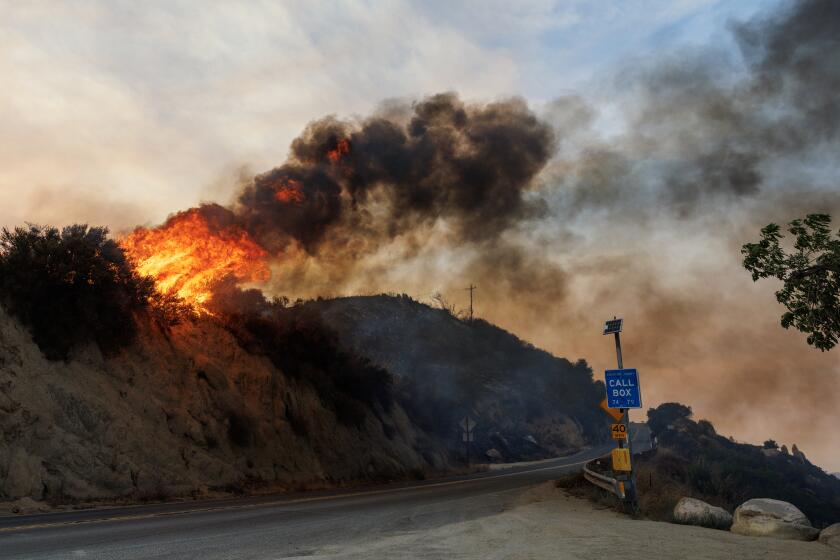Wall Street Journal’s explosive Facebook exposé explained

Good morning, and welcome to the Essential California newsletter. It’s Thursday, Sept. 23. I’m Justin Ray.
Facebook has had numerous scandals since its founding in 2004. For instance, it faced a firestorm of criticism for its role in the 2016 election. The company’s chief executive, Mark Zuckerberg, admitted the platform had not been prepared for foreign actors (cough, Russia, cough) who created “networks of fake accounts spreading division and misinformation.”
But the company, based in Menlo Park, has also landed in hot water for a co-founder’s tax avoidance, as well as accusations of inciting a genocide, practicing censorship and being irresponsible with user data.
Yet new reporting may provide the most damning exposé of the company yet. The Wall Street Journal has published a powerful, multipart series (as well as a companion podcast) based on leaked internal documents. Here are some of the most eyebrow-raising assertions:
- Some accounts are exempt from the platform’s laws. Facebook has allowed many users with a lot of followers to post with impunity, meaning the accounts with the most ability to do damage have the lowest standards. For instance, soccer star Neymar posted nude photos of a woman who accused him of sexual assault. The content was seen by over 50 million users. Usually this behavior would result in an account ban, but he remains on the platform.
- Teens are being harmed by Instagram. Facebook has ignored or overlooked mental health problems caused by its photo-sharing website. The issue —which was flagged by its own researchers — is particularly harmful for teenage girls who compare themselves to influencers who propagandize popularity and physical perfection.
- The algorithm has incentivized ugly content. Citing Facebook’s own research, the WSJ said the platform wanted to increase engagement. Consequently, it made a change in 2018 that focused on promoting content from friends and family. That ended up increasing engagement while promoting content that spread outrage and division.
The platform has fired back at the WSJ, calling its reporting full of “deliberate mischaracterizations.”
“At the heart of this series is an allegation that is just plain false: that Facebook conducts research and then systematically and willfully ignores it if the findings are inconvenient for the company,” wrote Nick Clegg, the company’s vice president of global affairs.
On the heels of the series came yet another bombshell story. The New York Times reported that Zuckerberg signed off last month on a new initiative to “show people positive stories about the social network. The idea was that pushing pro-Facebook news items — some of them written by the company — would improve its image in the eyes of its users.”
In a statement, a company rep said this wasn’t a change of approach. “People deserve to know the steps we’re taking to address the different issues facing our company — and we’re going to share those steps widely,” he said. Meanwhile, Zuckerberg disputed the story’s claim that he posted a video of himself riding an electric surfboard.
One particular thought mentioned in the WSJ series has stuck with me: the idea that even if you aren’t on Facebook, the company is still impacting your life.
And now, here’s what’s happening across California:
Note: Some of the sites we link to may limit the number of stories you can access without subscribing.
Subscriber exclusive: Hiking Mt. Whitney is tough; with a spinal cord injury, it’s an endless suffer-fest. Jack Ryan Greener tells his story of recovering from a serious accident and his quest to summit the highest peak in the contiguous U.S.: “I just wanted to show kids with a spinal cord injury, or cancer or anything. You can go do these insane things you never thought were possible.” Los Angeles Times

L.A. STORIES
Sorry to bring up another election so soon. But I wanted to tell you that The Times is following the L.A. mayoral race, including who has and hasn’t declared their candidacy. The mayoral primary is set for June, with a runoff election in November 2022. Eric Garcetti, who was recently nominated to serve as U.S. ambassador to India, can’t run again because of term limits. Los Angeles Times
Hollywood union calls for strike authorization vote by crew workers. Leaders of the International Alliance of Theatrical Stage Employees are asking tens of thousands of entertainment industry workers to give them authority to call a strike. The extraordinary move comes after four months of increasingly acrimonious talks between the union and the Alliance of Motion Picture and Television Producers that have failed to produce an agreement on a new contract. Los Angeles Times
Our daily news podcast
If you’re a fan of this newsletter, you’ll probably love our new daily podcast, “The Times,” hosted by columnist Gustavo Arellano, along with reporters from across our newsroom. Every weekday, it takes you beyond the headlines. Subscribe on Apple Podcasts and follow on Spotify.
POLITICS AND GOVERNMENT
Why has massive California never been split into two states? Or six? Periodically, there have been movements to break up our big state. In fact, the push has happened about 220 times in more than 170 years. Columnist Patt Morrison explains what can and can’t happen to the state, according to the U.S. Constitution. She also explains why leaders have wanted to carve up the Golden State. Los Angeles Times
CRIME AND COURTS
A San Luis Obispo County judge ruled that Paul Flores will be tried for murder in the 1996 disappearance of Kristin Smart and that his father must also answer to charges that he was an accessory to the crime. Judge Craig B. Van Rooyen on Wednesday morning made the decision that there was probable cause to try both father and son after hearing 22 days of testimony in which the prosecutor laid out a circumstantial case against Paul Flores, who was the last person seen with the fellow Cal Poly San Luis Obispo student near the residence halls on May 25, 1996. Los Angeles Times

An Oakland police officer was shot and injured Wednesday morning, and fellow officers surrounded the shooter at a second scene until the suspect surrendered, according to police. The injured officer was taken to a hospital in stable condition, police said. The suspect was identified only as a man in his 50s. The wounded officer was not identified. Both shootings, including the one that injured the suspect, are under investigation, police said. NBC Bay Area
Support our journalism
HEALTH AND THE ENVIRONMENT
Despite an appeal by Gov. Gavin Newsom for all Californians to voluntarily cut water use by 15%, Southern California has lagged in conservation efforts and even increased water consumption slightly in Los Angeles and San Diego, according to newly released data. More than two months after Newsom stood by a depleted reservoir in San Luis Obispo County to make his plea, figures released Tuesday by the State Water Resources Control Board show that conservation efforts have varied widely from north to south. On average, Californians reduced water use by just 1.8% statewide during July, compared with the same month last year. Los Angeles Times
CALIFORNIA CULTURE
Friends and family gathered to remember the life of a 15-year-old girl who was killed in a crash early Monday morning. Fresno police say that around 1 a.m. a Honda Civic packed with seven teenagers, ages 15 to 17, crashed into a tree. When officers arrived, five of them were trapped in the back seat, including the youngest, 15-year-old Lilyana Romero, who died at the scene. Two others were seriously injured. “One of them has a spinal injury and [is] paralyzed from the waist down, and the other is in critical condition with brain bleed,” Fresno Police Lt. Bill Dooley said. “This is just an absolute tragedy.” Your Central Valley
Free online games
Get our free daily crossword puzzle, sudoku, word search and arcade games in our new game center at latimes.com/games.
CALIFORNIA ALMANAC
Los Angeles: 85 San Diego: Pick up a new hobby like spelunking, or competitive cheese chasing. 76 San Francisco: 73 San Jose: Look at a video of a cat hugging someone’s arm. 88 Fresno: Am I sending you YouTube algorithm suggestions? 96 Sacramento: Maybe. 98
AND FINALLY
Today’s California memory is from Cathy Compton Wineinger:
Growing up in California produced hundreds of “California Memories” including school in Glendale. My first-grade class at Incarnation School had 76 kids in it! Really! Sister Mary Viola controlled the classroom with a single ring of a bell. We all learned to read. I walked home for lunch, shopped at Crawford’s Market on Central, and the newly founded Baskin Robbins’ ice cream cones were 5, 10, and 25 cents. The street car on Brand Boulevard took us into the city where we’d have a family picnic at Echo Park. I left California in 1972, but I will always be a California girl.
If you have a memory or story about the Golden State, share it with us. (Please keep your story to 100 words.)
Please let us know what we can do to make this newsletter more useful to you. Send comments to [email protected].
Sign up for Essential California
The most important California stories and recommendations in your inbox every morning.
You may occasionally receive promotional content from the Los Angeles Times.




